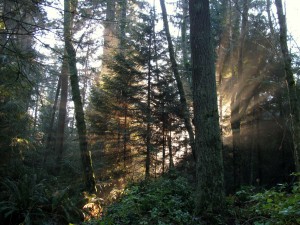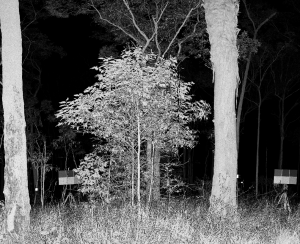Dr Rachel Gaulton, School of Civil Engineering and Geosciences, with colleagues from Salford University (Professor Mark Danson, lead organiser), University of Massachusetts Boston, and University College London, has won support from the Royal Society to hold a Theo Murphy International Scientific Meeting at The Society’s Chicheley Hall. The meeting will bring together key researchers from around the world to discuss “The terrestrial laser scanning revolution in forest ecology” and amongst the sixteen invited speakers are researchers from Australia, United States, Finland, Netherlands and the UK. The meeting will lead to a special themed issue of the Royal Society’s inter-disciplinary journal Interface Focus.
Complex forest structure is difficult to quantify from traditional field inventory but can be characterised in 3-dimensions using TLS
Terrestrial laser scanners, or TLS for short, provide detailed three-dimensional measurements of forests with unprecedented accuracy, by firing millions of laser pulses up into the canopy. These measurements are set to revolutionize the way in which ecologists measure forests, allowing changes over time to be characterised, and will help scientists to understand the role of forests globally in carbon storage and to monitor the impacts of climate change. Newcastle University Geomatics Research Group has a long track-record of research at the forefront of TLS processing and application, including recent NERC-funded work on dual-wavelength laser scanning for forest health monitoring and the meeting will provide a key showcase for this work, whilst helping set the wider agenda for the future of the field. The meeting will take place on the 27-28th February 2017 with the programme released soon.
Forest laser scan from the Salford Advanced Laser Canopy Analyser


